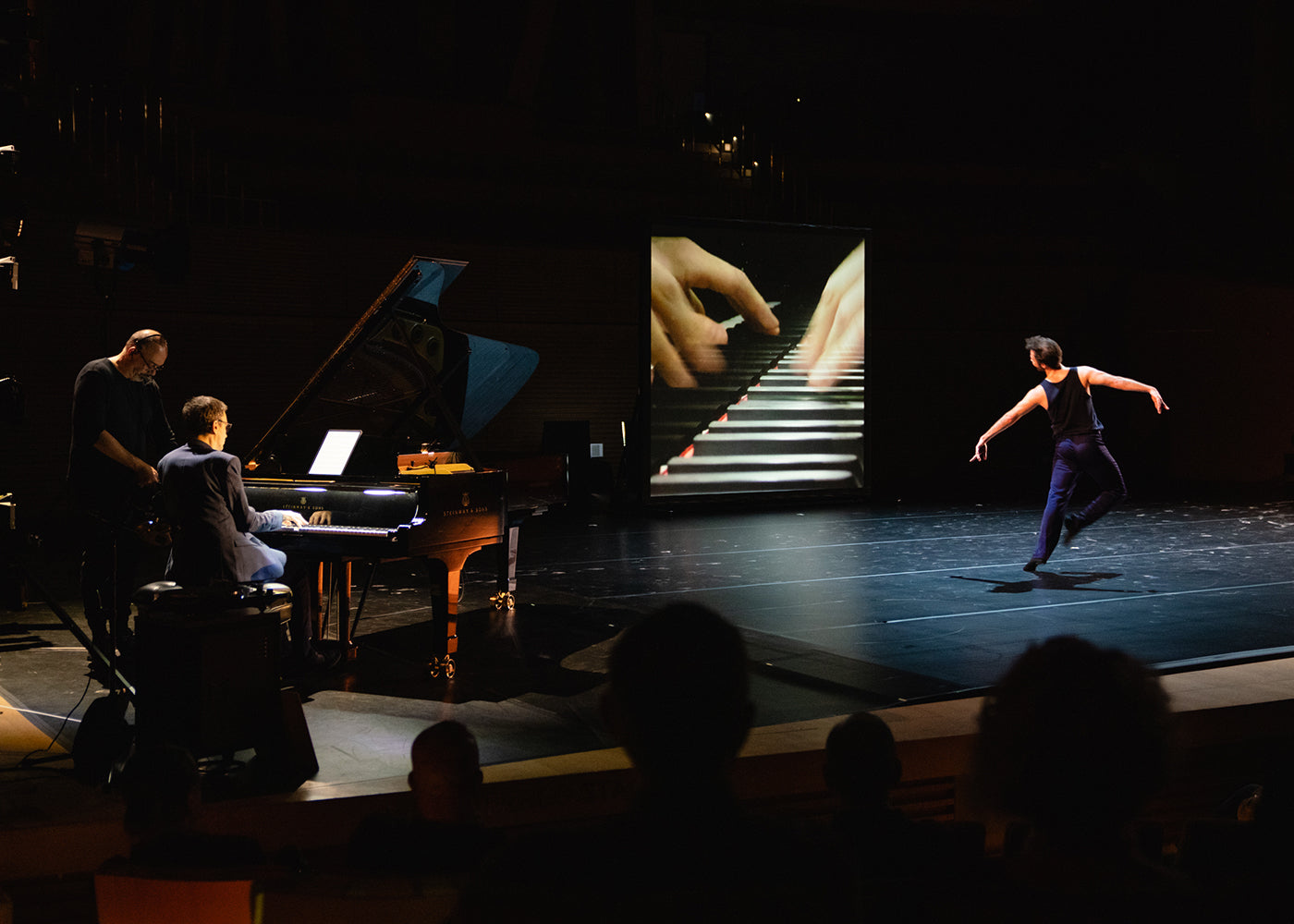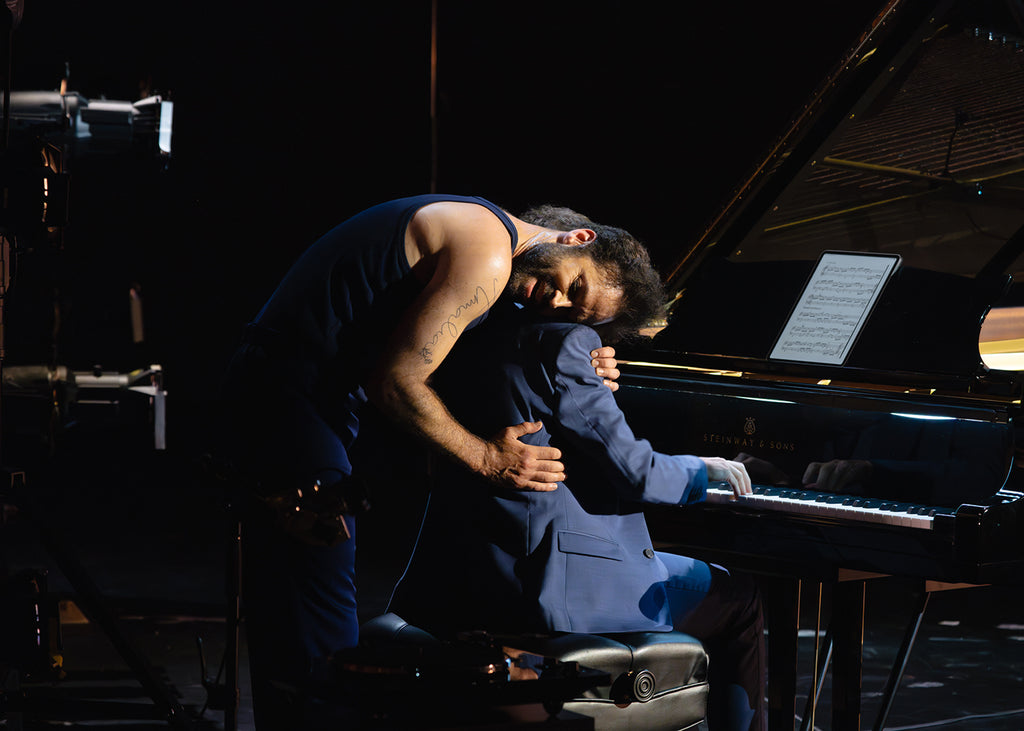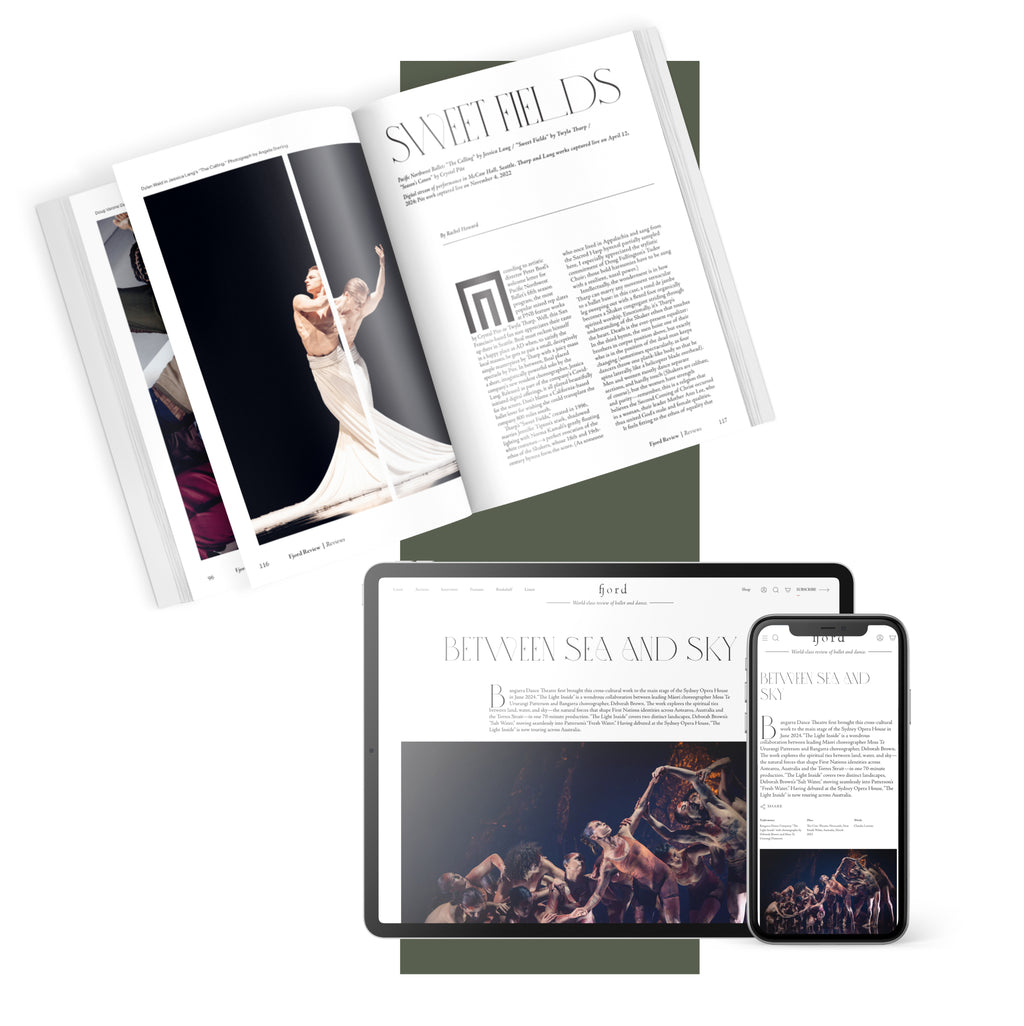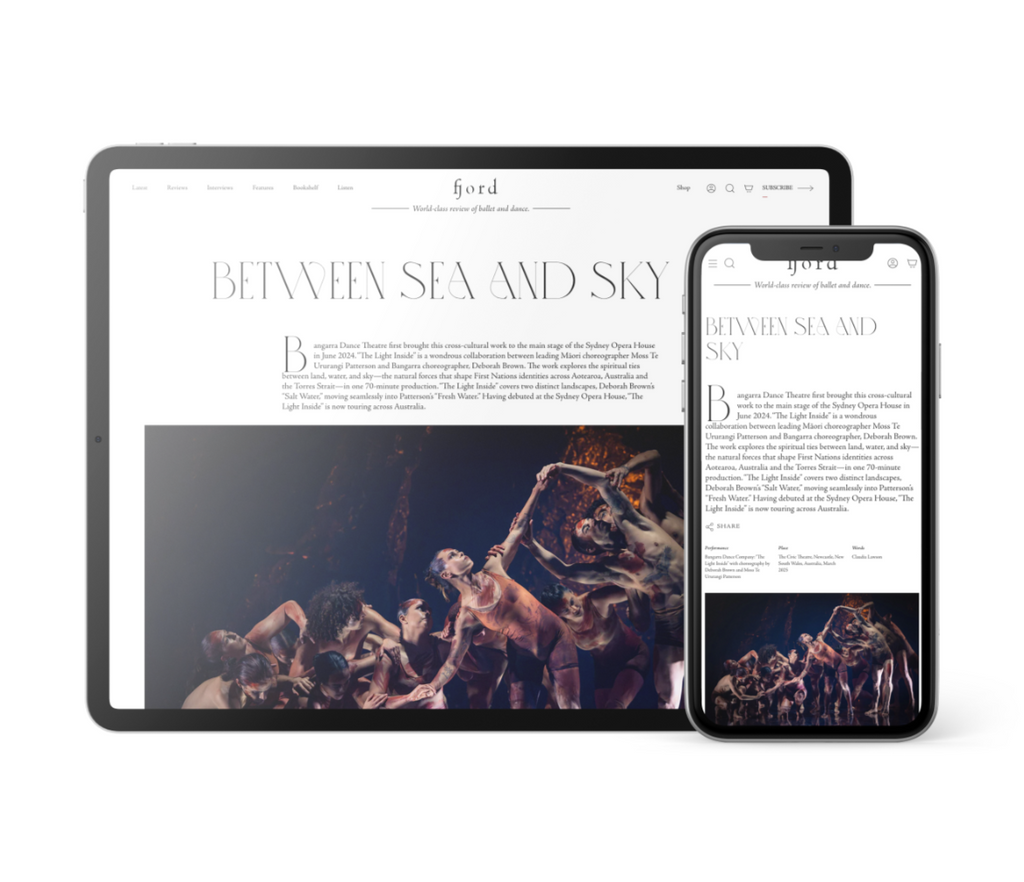Feathers Flying
In a world where Tchaikovsky meets Hans Christian Andersen, circus meets dance, ducks transform and hook-up with swans, and of course a different outcome emerges.
Continue Reading
World-class review of ballet and dance.
If there’s anybody who embodies ‘rizz’—charisma in today’s coolspeak—it’s dancer, choreographer, and filmmaker Benjamin Millepied. And he brought it to the audience at Walt Disney Concert Hall in a one-night performance with pianist Alexandre Tharaud. Dubbed, “Unstill Life,” which premiered in Lyon, France in 2023, the 70-minute intermissionless work was produced by Millepied’s L.A. Dance Project (and also made possible by the Van Cleef & Arpels Fund for LADP), and marked his return to the stage after a prolonged absence.
Performance
Place
Words




“Uncommonly intelligent, substantial coverage.”
Your weekly source for world-class dance reviews, interviews, articles, and more.
Already a paid subscriber? Login
In a world where Tchaikovsky meets Hans Christian Andersen, circus meets dance, ducks transform and hook-up with swans, and of course a different outcome emerges.
Continue ReadingMao Zedong’s famous statement that women hold up half the sky may sound poetic and even liberating.
Continue ReadingThe men are already on stage when the audience filters into the theater. Some stand stretching at the ballet barres, aligned in neat rows, and others move around, jumping, swinging their legs, lunging.
Continue ReadingThe questions that the choreographic duo known as Baye & Asa set out to answer in their in-progress work, “At the Altar” may or may not be rhetorical: Who or what do we worship? How do we worship? Who are the righteous? Who are the blasphemous?
Continue Reading
comments